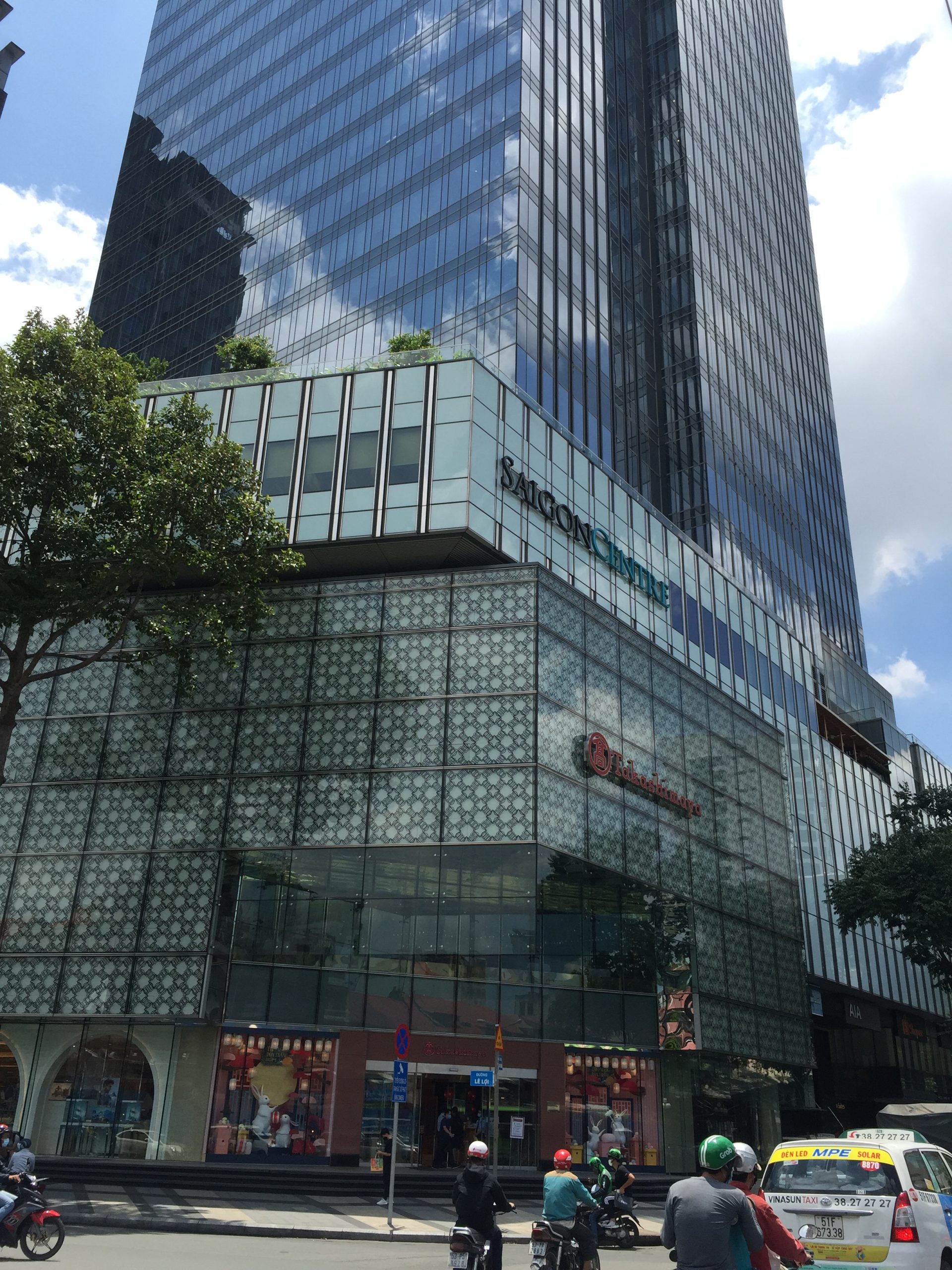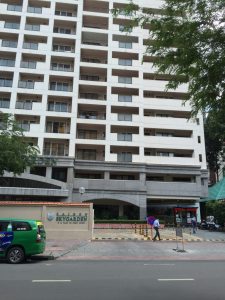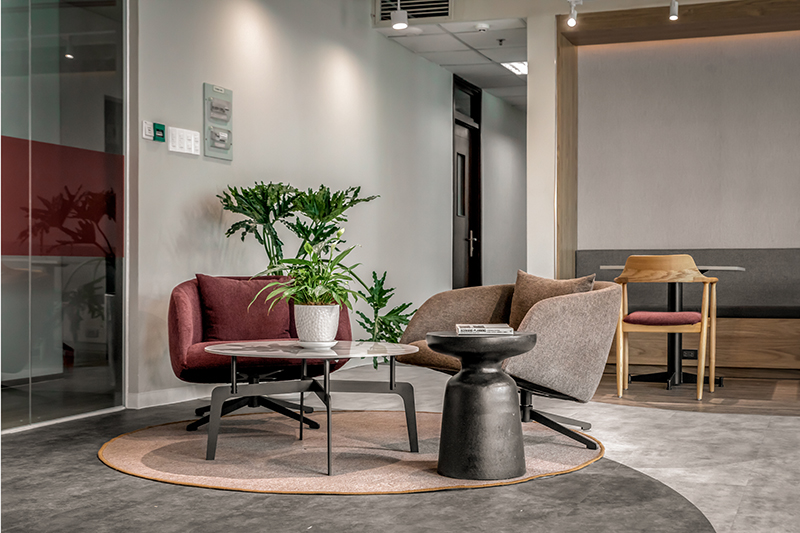Vietnam’s Industrial Parks (Part 4): Living Environment for Expatriates

When expanding into Vietnam, one major concern for companies is whether the living environment for expatriates is comfortable and well-equipped. The author has lived in Vietnam for 17 years. When first arriving, there were no AEON Malls, Takashimaya, or Japanese convenience stores — trips to Singapore were necessary to stock up on Japanese food and clothing. However, times have changed dramatically. Now, there are nine AEON Malls (four in the north and five in the south), one Takashimaya in Ho Chi Minh City, and hundreds of Japanese convenience stores — FamilyMart, Ministop, and 7-Eleven — mainly in the south.
This article introduces the living environment for Japanese expatriates assigned to Vietnam.
1. Housing
① Serviced Apartments:
Most Japanese expatriates live in serviced apartments, which offer cleaning and laundry services. In major cities such as Hanoi, Ho Chi Minh City, and Da Nang, there are many options, but in suburban areas near industrial parks, choices are limited. However, in Binh Duong Province — home to many industrial zones — Becamex Tokyu, a joint venture between Tokyu Corporation and Vietnam’s state-owned Becamex IDC, has developed serviced apartments with Japanese convenience stores and Japanese-speaking clinics nearby. This has created a comfortable environment even outside major cities.
Several Japanese real estate companies, including Starts and Leopalace21, operate in Vietnam, so it is possible to obtain local housing information from Japan.
② Apartments:
There are also many regular apartments without cleaning services, which tend to be slightly cheaper than serviced apartments.
③ Rooms for Rent:
This style involves renting individual rooms within a house. In Ho Chi Minh City’s Japanese district, many such rooms are available, and numerous single Japanese expatriates live in them. Most rooms have private toilets and showers, making them suitable for individuals.
★When choosing housing, commuting time must be carefully considered. Many expatriates prefer to live in large cities like Hanoi or Ho Chi Minh City, but if commuting takes more than 1.5 hours one way, it’s better to live closer to the factory. However, since accountants and managerial candidates often reside in large cities, sharing a car with the Japanese manager or other staff may be necessary.

2. Food
① Japanese Restaurants:
Although the number slightly decreased due to COVID-19, there are still over 1,000 Japanese restaurants in Vietnam, about two-thirds (around 650) of which are in the south. Even Binh Duong Province alone has dozens of them.
② Japanese Supermarkets:
In addition to supermarkets inside AEON Malls, there are specialty stores selling Japanese food, and Japanese ingredients are also available at Japanese convenience stores. Prices are higher than in Japan, but access is convenient. However, due to liquor taxes, shochu and sake cost about three times more than in Japan, so many expatriates buy them during visits home.
3. Clothing
In Hanoi and Ho Chi Minh City, AEON Malls and UNIQLO stores make shopping easy. Tailored suits are also available at lower prices than in Japan, and are highly recommended.
4. Hospitals
Both Hanoi and Ho Chi Minh City have several hospitals and clinics with resident Japanese doctors, offering peace of mind. However, for major surgeries, patients may be transferred to hospitals in Thailand or Singapore due to equipment limitations. Expatriates can use overseas travel insurance from Japan or purchase local insurance.
5. Transportation
Since public transportation is underdeveloped in Vietnam, expatriates mainly use company cars or taxis. Although Grab and other motorbike taxis are popular, many Japanese companies prohibit their use for safety reasons. Because motorbikes dominate Vietnam’s roads, expatriates generally use chauffeur-driven rental cars to avoid the risk of accidents.
6. Communication
Free Wi-Fi is widely available in major cities such as Hanoi, Ho Chi Minh City, and Da Nang — especially in cafés and restaurants — so staying connected is easy.
7. Entertainment
There are many golf courses across Vietnam, including near industrial parks in Binh Duong Province. While cheaper than in Japan, golfing is still considered a luxury activity given Vietnam’s cost of living. Tennis courts and fitness clubs are abundant in major cities, and many serviced apartments have them on-site. Massage parlors, karaoke bars, and pubs are also common both in city centers and near industrial parks, providing relaxation spots for Japanese expatriates.
In Hanoi and Ho Chi Minh City, many local prefectural associations (kenjinkai) and cross-industry networking groups hold regular gatherings such as dinners and golf tournaments, helping expatriates connect with each other.
Tag
- #Blog
- #coworking space
- #coworking space Vietnam
- #Foreigners
- #Industrial Parks
- #long-term office rental
- #meeting room rental
- #rental office vietnam
- #restaurant in district 1
- #restaurant in Le Thanh Ton street
- #shared office
- #short-term office rental
- #startup company
- #ブログ
Categories
Search
Access ranking
-
01

Vietnam’s Industrial Par...
-
02
![[Part 1] Short-Term Serviced Office Rental Vietnam|Why flexibility is essential now?](https://sotochika-office.com/wp-content/uploads/2025/05/R0003625-scaled.jpeg)
[Part 1] Short-Term Serviced O...
-
03
![[Part 2] Short-Term Serviced Office Rental Vietnam|Why flexibility is essential now?](https://sotochika-office.com/wp-content/uploads/2025/08/z6807120081634_340de811f5cd7edb71b62a3cdcb2826312122.jpg)
[Part 2] Short-Term Serviced O...
-
04
![[Part 1] Strategic Location in Le Thanh Ton: Why This Area’s Hotels & Restaurants Boost Business Networking Success?](https://sotochika-office.com/wp-content/uploads/2025/09/upscalemedia-transformed-29-scaled.jpeg)
[Part 1] Strategic Location in...
-
05
![[Part 2] Strategic Location in Le Thanh Ton: Why This Area’s Hotels & Restaurants Boost Business Networking Success?](https://sotochika-office.com/wp-content/uploads/2025/09/14248183324_826f2cb293_h.jpg)
[Part 2] Strategic Location in...
-
06
![[Part 1] How flexible office rental transformed our startup growth story](https://sotochika-office.com/wp-content/uploads/2025/08/upscalemedia-transformed-9-scaled.jpeg)
[Part 1] How flexible office r...
-
07
の外観.jpg)
Vietnam’s Industrial Par...
-
08

Vietnam’s Industrial Parks (Pa...
-
09
![[Part 1] What Are the Pitfalls in Establishing a Representative Office in Vietnam?](https://sotochika-office.com/wp-content/uploads/2025/08/1749086829857.jpg)
[Part 1] What Are the Pitfalls...
-
10

Vietnam’s Industrial Parks (Pa...

